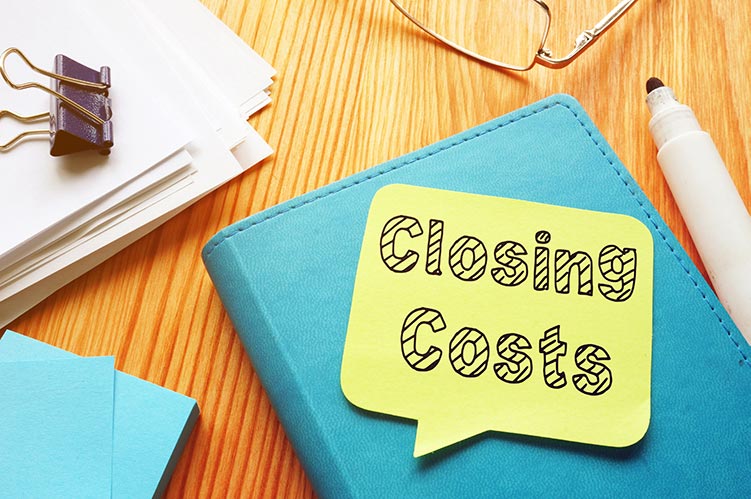Closing costs are a part of almost every real estate transaction. The key questions we hear from clients are:
- What are closing costs?
- Who pays them?
- How much are they?
There is no quick and easy answer because there are many variables that go into determining closing costs. It all depends on the type of loan, property cost, and location of the property. Each specific transaction will vary on who pays closing costs and exactly what they will be.
What are Closing Costs?
In short, closing costs are money paid at the end of a real estate transaction that are above and beyond the price of the property and down payment. Closing costs can include many items including fees, commissions, and insurance. They are paid by both the buyer and seller.
Some items you might see listed as closing costs include:
- Appraisal fees
- Loan origination fees
- Attorney fees
- Discounted mortgage points
- Title search and insurance
- Surveys
- Taxes
- Escrow fees
- Home inspection fee
- Credit report fee
Whether these are items paid at closing depends on the type of transaction. In addition, each state and municipality has different requirements and laws about closing costs in their area.
Who Pays Closing Costs?
The buyer and seller usually both pay a portion of the closing costs, although sometimes the amount paid by the buyer is reduced by concessions given by the seller.
The seller usually pays for agent’s commissions for both the buyer and seller, title insurance, transfer taxes, seller’s attorney fees, back taxes, and outstanding money owed on the property. The seller’s closing fees are usually in relation to transferring the property to the new owner.
Costs covered by the buyer can include appraisal fees, home inspection costs, homeowner’s insurance, bank processing, notary costs, credit report fees, and other costs involved in obtaining a loan and working with a lender.
The buyer has the option to pay the costs at closing, or they might roll it into their loan amount. However, adding the amount to the loan just increases the overall amount owed and the interest they will pay over the life of the loan.
Sometimes, depending on the market, a seller might offer to pay concessions and cover closing costs usually charged to the buyer. However, the amount of concessions allowed is regulated by the mortgage industry based on the type of property, the amount of the down payment, and the type of loan.
How Much Are Closing Costs?
The closing costs a seller pays can be as high as 10 percent of the sales price if they pay the commissions for both the seller’s and buyer’s agents. The commissions can reach up to 6% of the sales price.
The buyer can expect to pay 2% to 5% of the purchase price. A lender is expected to give a Loan Estimate or a Good Faith Estimate within three days of the loan application. This is so there are no surprises when the buyer gets to the closing table.
Closing costs around the country differ based on the location and market conditions. For instance, a report by Closing Corp showed that closing costs in the District of Columbia averaged $25,800 in 2019. A vast contrast is the 2019 closing cost average for Iowa, which was only $2,194.
The national average of closing costs in 2019 for a single-family property was $5,749, including taxes.
Because there are so many variables, the best way to estimate closing costs is to talk to the agent or lender you are working with. It is important that the specifics about the loan type, property value, and location are considered.




